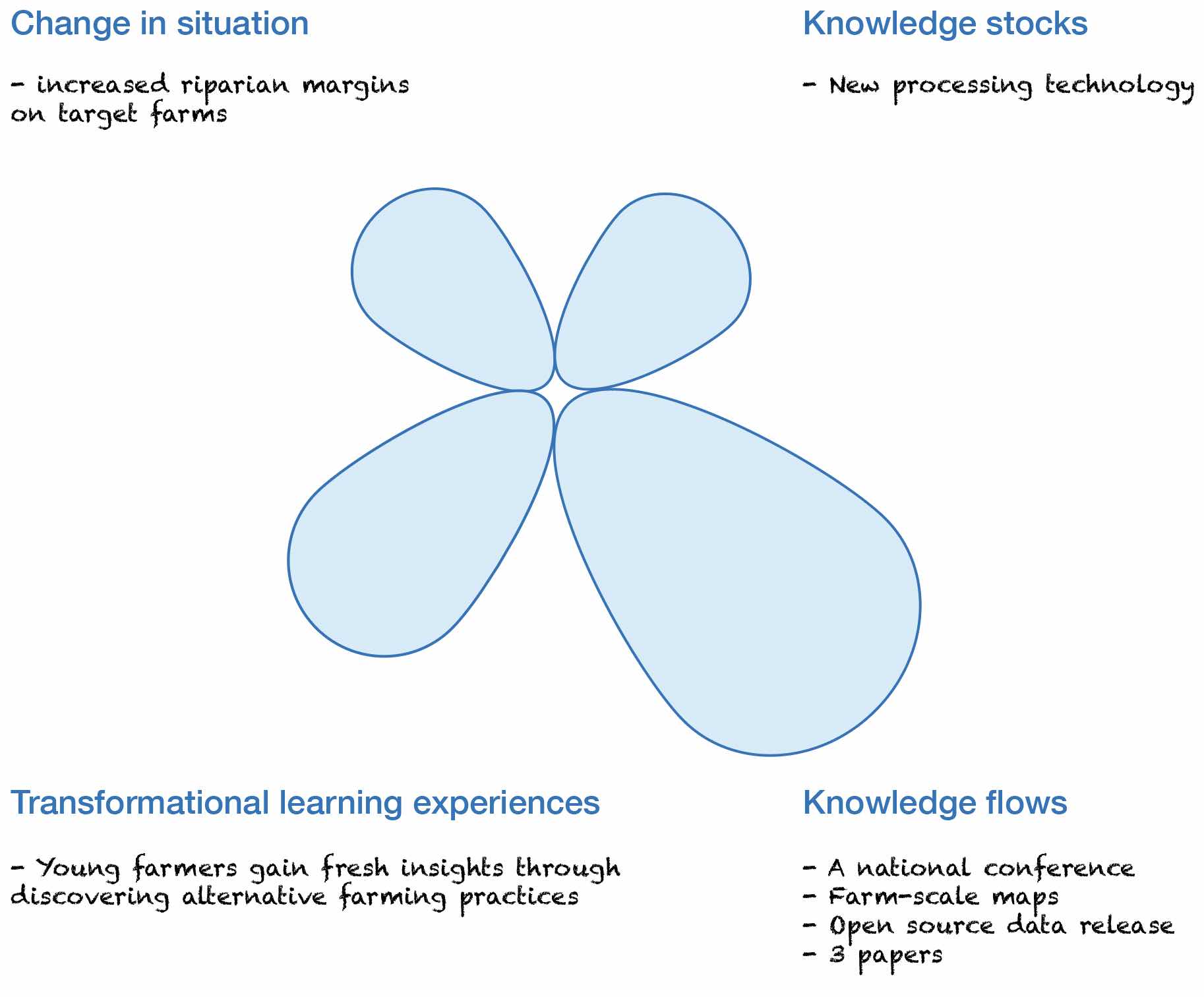Outcome spaces
A tool for negotiating and agreeing on project outcomes.
- Easy
- 2 hours
The outcome spaces framework provides a structured way to discuss and agree on preferred outcomes for a project.
The outcome spaces framework helps project teams identify what they want the project to achieve (it outcomes) in four important areas:
- improvements in the situation (this is actual change on the ground like reduced sediment loss from hill farms, or more kiwis protected),
- generation of relevant knowledge ‘stocks’ (this is new knowledge, much of our research produces this),
- helping knowledge flow to the right people and places (this can be through journal papers, huis, blogs, field days, conferences, articles in the popular press, and building new or enlarging networks)
- creating social learning experiences (where people learn new things or learn to see things differently, I think of these as 'aha!' moments).
Defining upfront what you want to achieve helps to make the research more purposeful and this framework in particular allows the project to negotiate between potentially competing outcomes and decide, as a project, the specific outcomes to be targeted. This is especially useful when developing project bids.
The framework is best developed in a workshop with the research team and stakeholders lasting at least 2 hours.
Ask individuals to list all of the things they want to project to achieve. (e.g. improved knowledge on pollination by wasps, better connected leading farmers around biodiversity on farms, improved water quality in Silver stream).
The facilitator then clearly explains each outcome space (situation, stocks, flows and learning).
- People read out their desired project outcomes and the group decides which 'outcome space' they sit in.
- Then ask each participant to indicate how much of the resources available (time/$) the would spend on each of the four outcome spaces. Display these on a whiteboard.
- Discuss tensions and tradeoffs around the resources and decide on the proportions between the outcome spaces. Then return to the list of project outcomes for each outcomes space and discuss what the project could achieve with the allocated resource.
- It is useful to reference your project goal when deciding where to prioritise resources and which outcomes to include.
Capture diagram and associated outcomes and notes. Write up and distribute for comment.
 An example outcome spaces diagram. In this example the project is investing heavily in knowledge flows and less in the other three areas.
An example outcome spaces diagram. In this example the project is investing heavily in knowledge flows and less in the other three areas.
The framework is best used in the planning of the research. It is also extremely useful at mid-project evaluations.
Manaaki Whenua ran a workshop and looked at projects over time (draft paper referenced below). We asked people to reflect on what their intentions were at the start in terms of outcomes and effort and compared that with what had actually happened in the project so far. We then asked if the outcomes that are being focused on or the distribution of effort is likely to be effective in delivering the overall project goal going forward. The discussion of the differences between the ideal and reality usefully highlighted where systemic factors were facilitators or barriers to the project.
More information
Designing for impact in transdisciplinary research, Integration and implementation insights
Mitchell, C., D. Cordell and D. Fam (2015). Beginning at the end: The outcome spaces framework to guide purposive transdisciplinary research. Futures 65: 86-96.
Duncan, R., Robson-Williams, M., Fam, D. Assessing research impact potential: using the transdisciplinary Outcome Spaces Framework with New Zealand’s National Science Challenges

